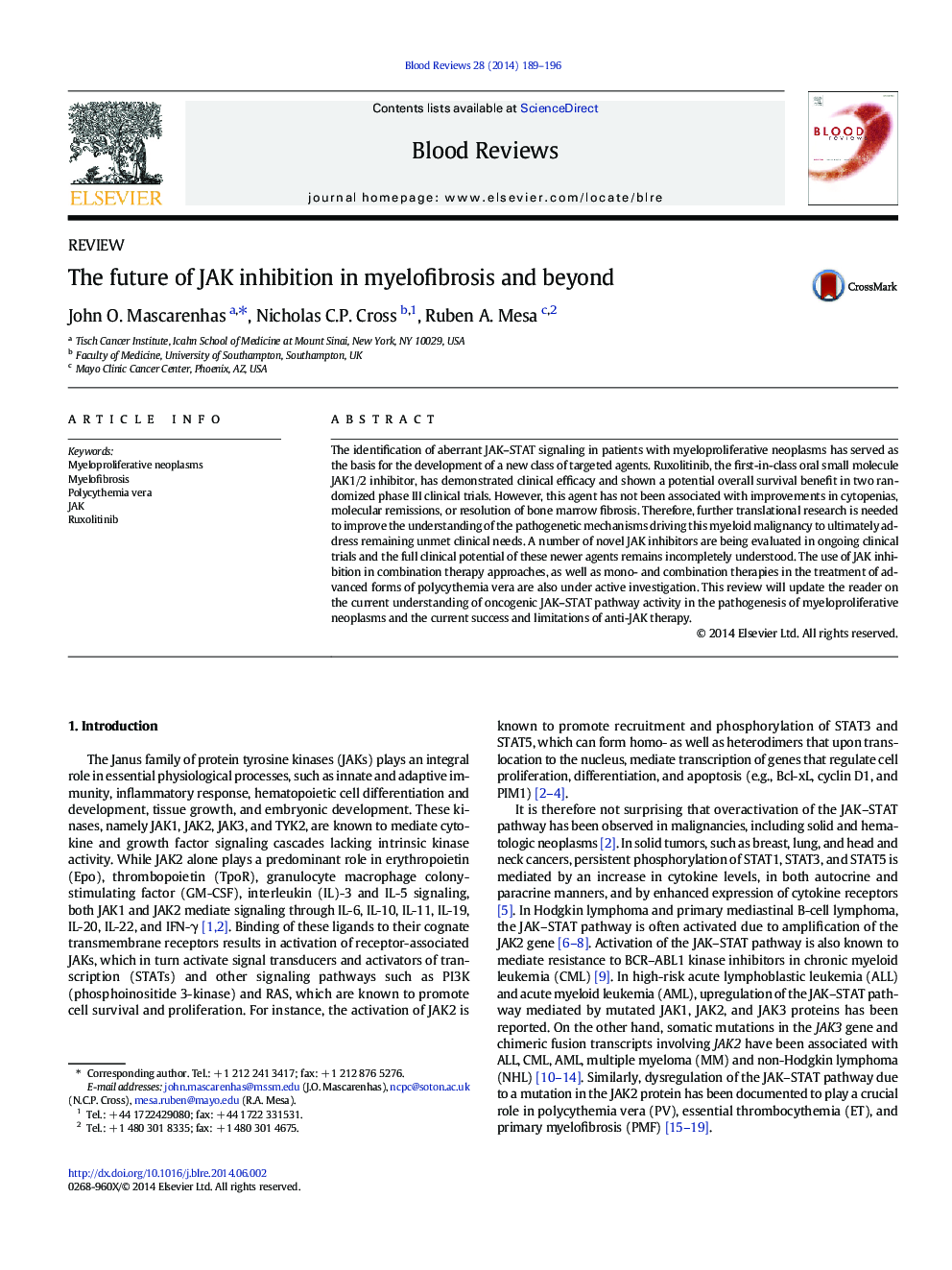| Article ID | Journal | Published Year | Pages | File Type |
|---|---|---|---|---|
| 10895777 | Blood Reviews | 2014 | 8 Pages |
Abstract
The identification of aberrant JAK-STAT signaling in patients with myeloproliferative neoplasms has served as the basis for the development of a new class of targeted agents. Ruxolitinib, the first-in-class oral small molecule JAK1/2 inhibitor, has demonstrated clinical efficacy and shown a potential overall survival benefit in two randomized phase III clinical trials. However, this agent has not been associated with improvements in cytopenias, molecular remissions, or resolution of bone marrow fibrosis. Therefore, further translational research is needed to improve the understanding of the pathogenetic mechanisms driving this myeloid malignancy to ultimately address remaining unmet clinical needs. A number of novel JAK inhibitors are being evaluated in ongoing clinical trials and the full clinical potential of these newer agents remains incompletely understood. The use of JAK inhibition in combination therapy approaches, as well as mono- and combination therapies in the treatment of advanced forms of polycythemia vera are also under active investigation. This review will update the reader on the current understanding of oncogenic JAK-STAT pathway activity in the pathogenesis of myeloproliferative neoplasms and the current success and limitations of anti-JAK therapy.
Related Topics
Life Sciences
Biochemistry, Genetics and Molecular Biology
Cancer Research
Authors
John O. Mascarenhas, Nicholas C.P. Cross, Ruben A. Mesa,
